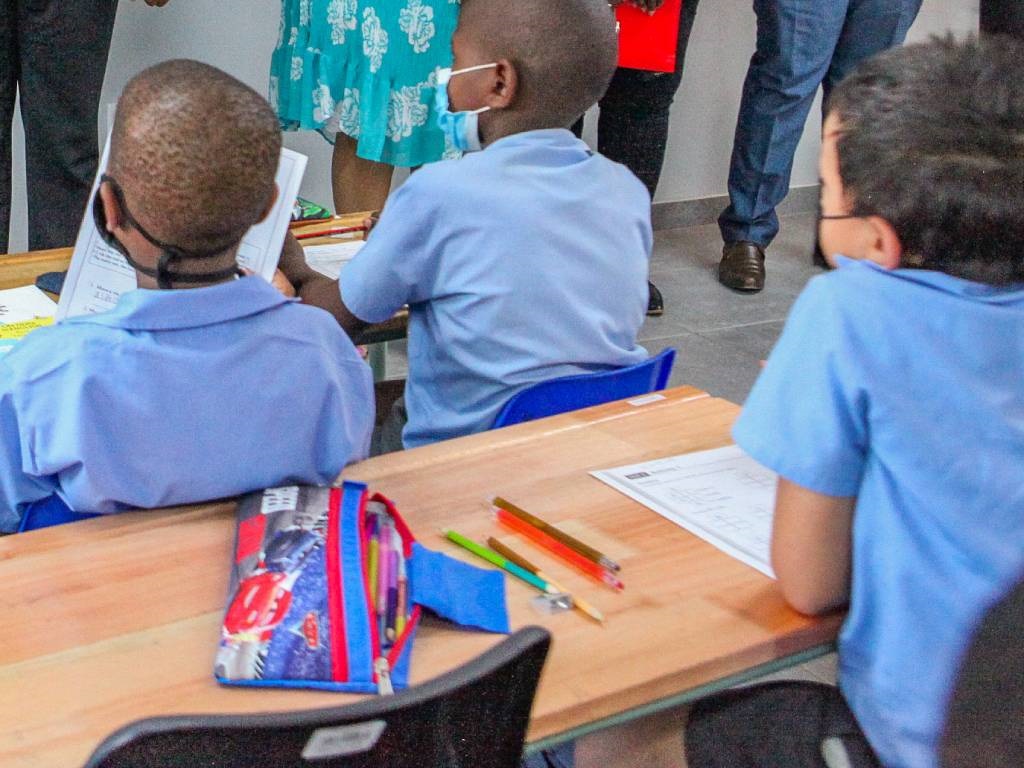
There needs to be rigorous monitoring of the use by provincial governments and schools of the existing budget should to inform any decision on whether increased funding is the answer to the country's foundation phase reading problem, writes Penny Vinjevold and Marion Mbina-Mthembu.
There is consensus that South Africa has a reading problem and that this affects the life chances of many of her children. But how is this to be addressed? The recently released report of the Reading Panel 2030 regrets that 'there are no new national budgets for reading programs or reading resources.'
Would a new national budget allocation be the solution to South Africa's reading problem? Luis Crouch (Senior Economist Emeritus, Research Triangle Institute, and one of the originators of the global foundational learning movement) argues that "reading or even foundational reading should NOT have its own budget, except, of course, in a development or research phase. That’s because it should just be the way things are done."
READ | ANALYSIS: Reading with meaning - One programme showing positive impacts
Andrew Donaldson, former Deputy Director General at the National Treasury agrees with Crouch and says that "if for example, there was a conditional grant for reading programmes, it might well have the perverse outcome of leading to less spending on these activities and less oversight and management at the school/district/provincial level because it would be seen as a 'national' responsibility, subject to national guidelines and policy."
It seems that there are three separate issues in the question of "is it the money?" First, is it new national money that might be needed; or is money (even provincial money) the main issue; or is the question how is the money spent?
To answer the first question, we can start by asking, "how is reading in the Foundation Phase currently funded?"
The National Government allocates total funds to provincial governments for all sectors, health, education, social development etc., according to an equitable share formula. Provincial governments then decide how much of this total allocation goes to education. The 2022/23 Financial Year provincial allocation ranged from 36% in the Western Cape to 49% in Limpopo. This indicates that provinces have some discretion in relation to their spending on education and even on Foundation Phase reading.
Then provincial education departments allocate funds to primary and secondary schools. Table 1 shows apparent disparities across provinces in spending on the two sets of schools. However, these reported allocations should be treated with caution as provinces determine budget allocations and classify schools in different ways. Eastern Cape figures for the secondary level, in particular, tend to include schools that in other provinces would be considered primary schools.
Rather than focusing on the reported amounts spent on primary schools, perhaps attention should be given to the nine provinces' chapters on estimates of expenditure on education which describe what is being done at a systemic level about reading in the Foundation Phases and related priorities.
Two recent examples of provincial education departments introducing systemic changes to shift funds and resources to the Foundation Phase deliberately are those in the Eastern Cape and Western Cape.
In 2018, 2019 and 2020, the Eastern Cape Department of Education (ECED) top-sliced the total allocation of teaching staff to provide 1 800 more teachers to the Foundation Phase; and in 2018 and 2019, the Department procured and distributed graded readers to every child in Grades 1, 2 and 3 at a cost of R15 million per annum or about R10 per child. This is a very small amount of money per child.
In addition, all qualifying Foundation Phase subject advisers were invited to attend training programmes on how to teach reading and attention was given to schools with low pass rates in the Foundation Phase to address the inefficiency of 76 000 learners repeating in these grades. It is unclear whether monitoring mechanisms were introduced to ensure the uptake and impact of these interventions or whether they have been sustained.
Interventions
Examples of sustained systemic interventions are found in the Western Cape. In 2002, the Western Cape Education Department (WCED) introduced externally set and administered Grade 3 and 6 tests to assess which schools required support with reading and mathematics. These tests have been administered annually for 20 years. In addition, support mechanisms have been implemented as a direct result of the systemic tests. For example, in 2006, the WCED revised the provincial allocation of teaching posts to allow top-slicing of posts for the foundation phase to reduce class sizes in underperforming schools.
Then in 2011, the Foundation Phase received further attention through a focus on the Grade 1 pass rate and the systematic direction of district staff to support selected schools in the Foundation Phase. District Annual Plans required targets to be set for every school in the district; and targets for improvement of Grade 3 systemic reading results. More importantly, district plans required details on how the district would support schools in the attainment of these targets.
Again, monitoring mechanisms to ensure the public commitments to these interventions should be investigated and analysed. One indicator of implementation is that the Grade 1 pass rate was 79% in 2010 and 2011 and increased to 90% in 2016, and has remained above 90% to 2022.
These examples suggest that these provinces have been able to reallocate and manage support for Foundation Phase reading regardless of the funding that national level provides or does not provide.
Aside from these empirical cases, there are principled points one can make about ring-fenced national allocations.
The first problem with making new additional or ring-fenced budget available is that the implementation and monitoring is then the responsibility of a special unit and become "their" responsibility, instead of it being "just the way things are done" as Crouch notes above. Furthermore, these ring-fenced funds tend to be less sustainable and once the special programme ends, provinces revert to previous programmes and procedures, and any impact may not be sustained. That is, with ring-fencing and special national programmes, the issue could tend to be seen as a national responsibility, and that is a perverse result one does not want.
Related to this, Donaldson supports the discretion provided to provincial departments, "national departments, and certainly national treasury officials are too distant from the teaching coalface to exercise effective oversight over reading programmes." Rather, place the discretion at the level where organisational accountability and responsibility lies. National attention should be on measuring outcomes and reviewing good practice.
Is reading in SA getting attention it needs?
And we have seen, above, it is possible to take systemic initiatives at the provincial education department level. These would benefit from improved coordination, monitoring and communication of evidence and good practice.
Finally, there is overwhelming evidence that teaching reading, as an active skill, and in a direct and explicit manner is the key determinant of reading outcomes. This is not a budget matter.
READ | OPINION: Zelda Barends - The reality of the classroom is often a stumbling block
So how can we know if the reading problem in South Africa is receiving attention?
A first step may be to analyse provincial budgets, strategic plans and other public documents to ascertain whether the provincial government regards reading and / or the Foundation Phase as a priority. In addition, of course, one has to analyse whether these programmes and plans are being executed in a coordinated manner, and tracking reading outcomes in these grades.
Similarly, an analysis of the strategic documents of provincial education departments, such as their Annual Performance Plans (APPs) and the Estimates of Provincial Revenue and Expenditure (EPRE), which are tabled with provincial budgets, may describe plans for Foundation Phase reading so that these may be shared. Provincial education departments will publish their EPREs in March 2023.
Then in September, provinces will determine the allocation of teaching and other staff to each school in the province. The post-provisioning norms (PPN) are a powerful tool for signalling the priorities of provincial education departments. Will primary schools receive additional staff for the Foundation Phase? Will teaching staff of these grades be prioritised for training and does the allocation to learning materials reflect an emphasis on reading?
School subject offering
The per learner costs at secondary schools also require analysis. There may be many factors explaining the higher average costs of a secondary school pupil compared to a primary school pupil. The range of subjects of a technical nature offered in Grades 10, 11 and 12 may be one factor. These subjects are expensive to offer as they require equipment and consumables. Related to this is the wide range of subjects offered at many schools. This results in small classes and consequent inefficiencies.
The pre-service and in-service training offered by universities also bears investigation. Are Foundation Phase teachers trained to teach reading in the home language of the children they will teach?
Finally, should we investigate whether the R60 billion currently allocated to the 3.5 million children in the Foundation Phase is sufficient to improve reading in these grades? Until we know more about the decisions made to allocate current funds, it will be difficult to answer this question. Rigorous monitoring of the use by provincial governments and schools of the existing budget should certainly inform any decision on increased funding.
- Marion Mbina-Mthembu was the Director-General in the Eastern Cape from 2015 to 2019 and before that the Head of Treasury in the Eastern Cape.
- Penny Vinjevold was the Head of the Western Cape Education Department from 2009 to 2016 and then worked in the Eastern Cape Department of Education for four years.
Disclaimer: News24 encourages freedom of speech and the expression of diverse views. The views of columnists published on News24 are therefore their own and do not necessarily represent the views of News24.




 Publications
Publications
 Partners
Partners
























